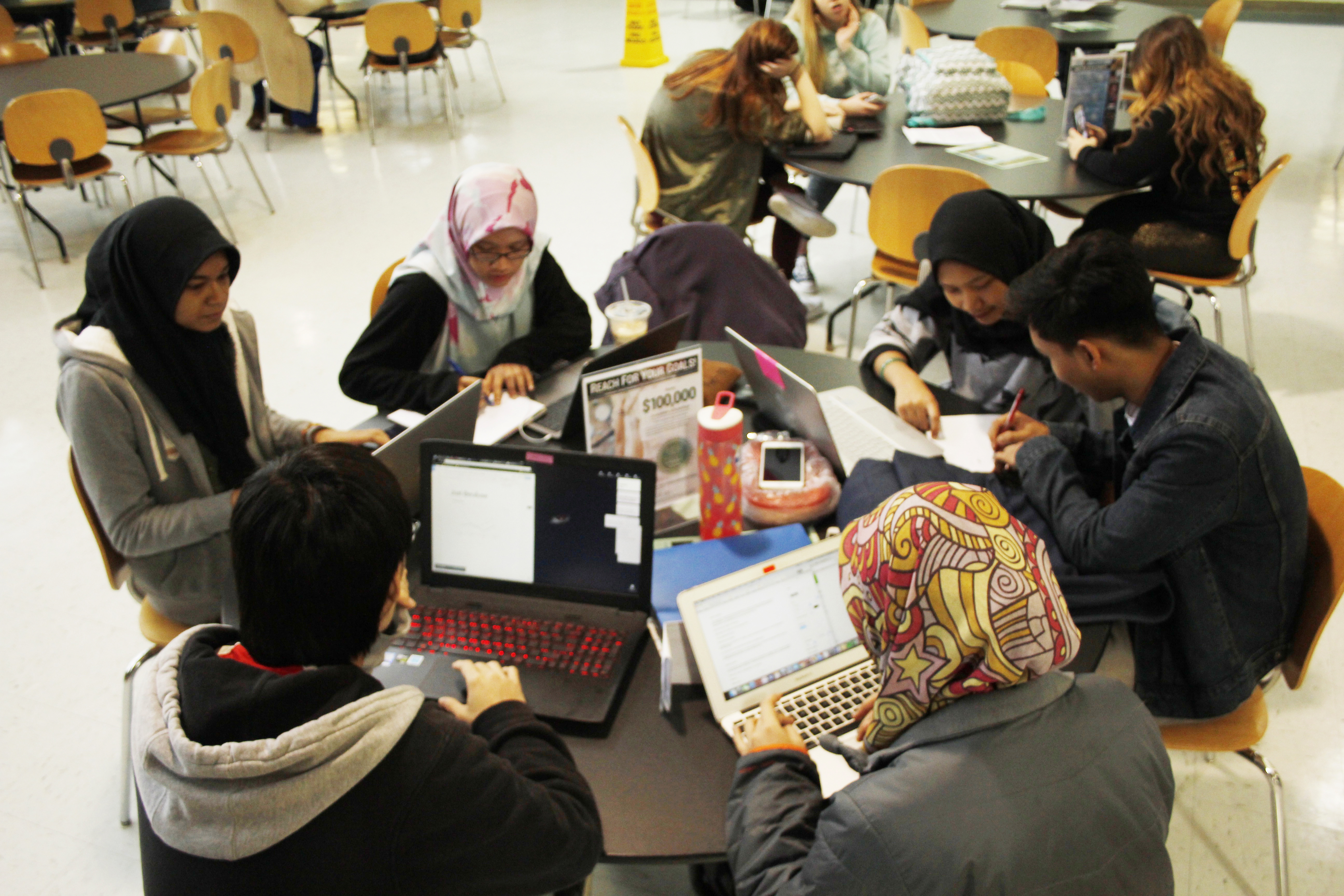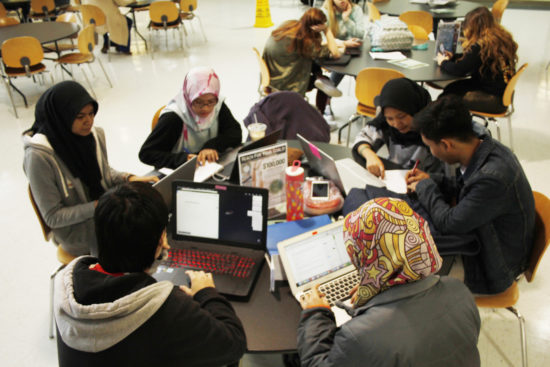

Photo and story by Ryan Fournier.
Seeking to lower textbook costs, the Associated Student Council is mulling over an “open-source” model for classes where feasible.
Open-source books can be accessed or reproduced with no fee to the publisher.
“A lot of people aren’t buying their books,” said ASC President Kelly Kevershan. Some books, she said, aren’t necessary to pass the classes they go with, and students get by without them.
Access codes to online material are now only available to campus stores in “bundles” with new textbooks, according to Camilla Rico, manager of PC’s self-owned campus bookstore, the Bookaneer. These stores, she said, used to offer the codes by themselves, and stock used textbooks for the classes they go with, until publishers stopped selling them separately.
Syakir Rosli, an Accounting student at PC, bought his access code separately online, rather than pay the roughly $300 for the three-quarter Accounting bundle through the Bookaneer.
“And then we tend to find another place to get that book,” he said.
Rico said, “It’s easy to see that textbooks are getting out of control,” Rico said.
Her mission at PC is to “keep textbook cost low.”
The store’s Plunder Program uses “creative sourcing,” in other words, hunting for the best deals, to acquire low-cost books. The store then sells books at less than market value, in order to save students money.
The gap between “Plunder” price and standard market price is the store’s measure of student savings, which recently exceeded $1 million since the Program’s beginning in 2009.
Rico attends PC Faculty Senate meetings, and advises teachers against burdening students with unnecessary expenses.
“If you have three options, maybe consider talking to the bookstore and seeing which one would be affordable,” she said.
“I think [open-source] would be great, honestly,” Rico said.
In fact, there are a few open-source books already used at PC.
Without the task of buying and selling copyrighted work, Rico said the store would still have a job to do.
“They’re going to need something that requires corralling or a database,” Rico said of College faculty.
She said for some subjects, teachers may be less trusting of books not connected to publishers.
PC Physics and Astronomy Professor Bjorn Nilsen said, theoretically, open source books could work in his field.
“It’s such standard stuff,” he said of his subject matter.
There just aren’t any open source options he finds suitable.
Nilsen used an open source Physics book when he first started at PC, which cost $24. He found that particular book unnecessarily “wordy,” and his students had difficulty with it. He dropped it after the first term.
Though he doesn’t use them all, he said books bought from publishers come with extra features he doesn’t think open source materials would include, like lesson plans and automatically-graded online quizzes.
Nilsen uses PC’s Canvas system, where teachers design quizzes, but grading is automated.
The ASC is still gathering information on textbook economy. Kevershan said the ASC hopes to attend Faculty Senate in the near future to open a dialogue with teachers, and explore affordable options.
